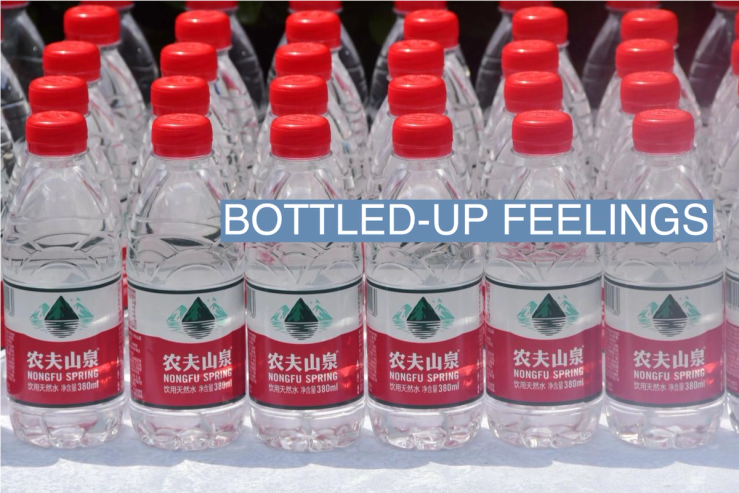The News
China’s largest bottled water company, Nongfu Spring, has become the latest firm to be targeted by a social media boycott — over its ultra-wealthy founder — with Chinese officials worried that nationalist consumers could hinder the already shaky growth of the country’s private sector.
The pushback began in February after the death of Zong Qinghou, the founder of rival Wahaha bottled water, prompted social media users to hail Zong as a Chinese patriot. This prompted unflattering comparisons with Nongfu Spring leader Zhong Shanshan, currently China’s richest man.
Social media users called Zhong an “ungrateful profit-oriented businessman,” alleging a lack of patriotism because his son holds a U.S. passport – which some nationalists perceive as showing a lack of loyalty to China. They also claimed that Nongfu was using Japanese imagery in its branding, an inflammatory accusation in a country where anti-Japanese sentiment runs deep.
The repercussions have been substantial: stores across China said they would stop selling Nongfu products, and steep dips in the company’s Hong Kong shares wiped about 30 billion yuan ($4 billion) off its market capitalization, according to Nikkei Asia.
China’s government has been keen to promote nationalist economics — rewarding businesses that embody national pride and patriotism. However, several violent incidents over the last few years targeting companies seen as unpatriotic have led Beijing to step in, seeking to prioritize societal stability over the inflaming of nationalist grudges.
SIGNALS
Expectations that leaders should be Chinese ‘saints’ hurts business environment
The Nongfu Spring incident highlights a paradox for entrepreneurs when it comes to the Chinese internet: social media users expect business leaders to create jobs and profit, but they are also required to be “saints” who represent the best of China, Hu Xijin, the former editor in chief of state tabloid The Global Times, wrote for Tencent News. However, widespread scorn among netizens towards the business community does not help China’s economy, he argued. While the public has a right to have high expectations of business leaders, social media should “be more tolerant of private entrepreneurs” and focus on their economic contributions rather than legal or personal affairs. This will “definitely improve [China’s]′ business environment,” Hu wrote, as the central government works to improve conditions following a slow post-COVID recovery.
Beijing sees a ‘red line’ when nationalism veers into societal instability
Beijing wants “to ensure that nationalism serves as a unifying force rather than being misused,” and so will step in when it sees tensions rising too high, a Rutgers University scholar told Al Jazeera. He cited the example of a Chinese ultranationalist vlogger who caused a social media frenzy after confronting a mall store owner for using Lunar New Year decorations that the vlogger claimed depicted the Japanese flag. Many social media users said that under his argument, several other symbols — like the logo of telecoms firm Huawei — could also be considered Japanese symbols. The incident drew a response from state broadcaster CCTV, which on Weibo called the vlogger’s actions “detrimental to individuals, companies and society as a whole.”
Long-held anti-Japanese sentiment in China — over war crimes committed during the Sino-Japanese wars and Tokyo’s refusal to apologize — has led in the past to violent protests against Japanese car owners and police harassing women wearing kimonos. In an attempt to quell tensions, state media has run campaigns that promote positive Japanese sentiment. While Beijing supports nationalist economics, “there are red lines that cannot be crossed” and could lead to societal instability, the researcher said.
It’s trendy to buy Chinese-made products in China
Multinational firms in China face steep challenges from local competitors, in part because of widespread nationalist sentiment, analysts told the South China Morning Post. Local brands — primarily in the computers, smartphones, and vehicle sectors — have developed a reputation for being cheaper and more innovative than their foreign competitors, but customers are also increasingly keen on buying Chinese-made products out of national pride. “Many young people also want to express things such as ‘I’m Chinese,’” a researcher at Shanghai University of Finance and Economics told the SCMP. Even given China’s faltering economy, foreign companies are keen to pursue the market given its sheer size — but they are increasingly forced to maneuver around public sentiment or risk being “canceled.” A study cited by the SCMP found that more than half of foreign companies subjected to boycotts between 2008 and 2021 apologized publicly, including BMW, which issued a mea culpa following a viral incident last year when workers at a car show in Shanghai refused to hand out free ice cream to Chinese visitors.



